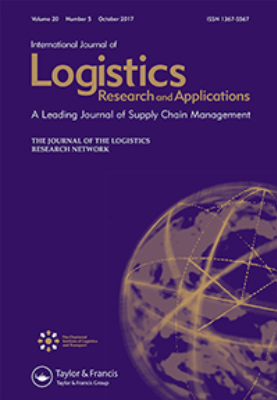Trade-off between economic, environmental and social objectives in pesticide supply chains
IF 4.9
3区 管理学
Q1 MANAGEMENT
International Journal of Logistics Research and Applications
Pub Date : 2023-03-23
DOI:10.1080/13675567.2023.2188180
引用次数: 0
Abstract
Biopesticides are considered as the effective measure to combat environmental consequences brought by chemical pesticides. However, due to the comparatively high price of biopesticides and unreasonable government subsidies, the trade-off between economy, society and environment represents a daunting task for pesticide supply chains. This study establishes a pesticide supply chain including manufacturers, retailer and government to study the production and sales strategies of pesticides under two different structures: monopoly and duopoly. Based on the equilibrium and numerical analyses, we find that: first, only when the government subsidy falls within a reasonable range, it can incentivise the chemical pesticide manufacturer to produce biopesticides in both monopoly and duopoly markets. Interestingly, the subsidy can improve the profit of pesticide supply chain in monopoly market, however the consumer surplus and social welfare are greater in duopoly market with the increase of subsidy. Second, the profit of pesticide supply chain is better after launching biopesticide and the retailer gains more profits in duopoly market than in monopoly market with the increase of farmer’s biopesticide acceptance. Third, the launch of biopesticides can decrease the influence of environment pollution in both market structures, and less environmental impact in monopoly market.农药供应链中经济、环境和社会目标之间的权衡
生物农药被认为是对抗化学农药带来的环境后果的有效措施。然而,由于生物农药的价格相对较高,政府补贴不合理,经济、社会和环境之间的权衡是农药供应链面临的一项艰巨任务。本研究建立一个包括制造商、零售商和政府的农药供应链,研究垄断和双寡头两种不同结构下农药的生产和销售策略。通过均衡分析和数值分析,我们发现:第一,政府补贴只有在合理范围内,才能够激励化学农药生产企业在垄断和双寡头市场中生产生物农药。有趣的是,在垄断市场中,补贴可以提高农药供应链的利润,但在双寡头市场中,随着补贴的增加,消费者剩余和社会福利更大。其次,农药供应链在投放生物农药后的利润更好,随着农民对生物农药接受度的提高,零售商在双寡头市场中获得的利润要高于垄断市场。第三,生物农药的上市在两种市场结构中都可以降低环境污染的影响,在垄断市场中环境影响较小。
本文章由计算机程序翻译,如有差异,请以英文原文为准。
求助全文
约1分钟内获得全文
求助全文
来源期刊
CiteScore
13.70
自引率
9.10%
发文量
71
期刊介绍:
International Journal of Logistics: Research & Applications publishes original and challenging work that has a clear applicability to the business world. As a result the journal concentrates on papers of an academic journal standard but aimed at the practitioner as much as the academic. High quality contributions are therefore welcomed from both academics and professionals working in the field of logistics and supply chain management. Papers should further our understanding of logistics and supply chain management and make a significant original contribution to knowledge. In this context the term "logistics" is taken in its broadest context as "the management of processes, flow of materials and associated information along the entire supply chain.

 求助内容:
求助内容: 应助结果提醒方式:
应助结果提醒方式:


